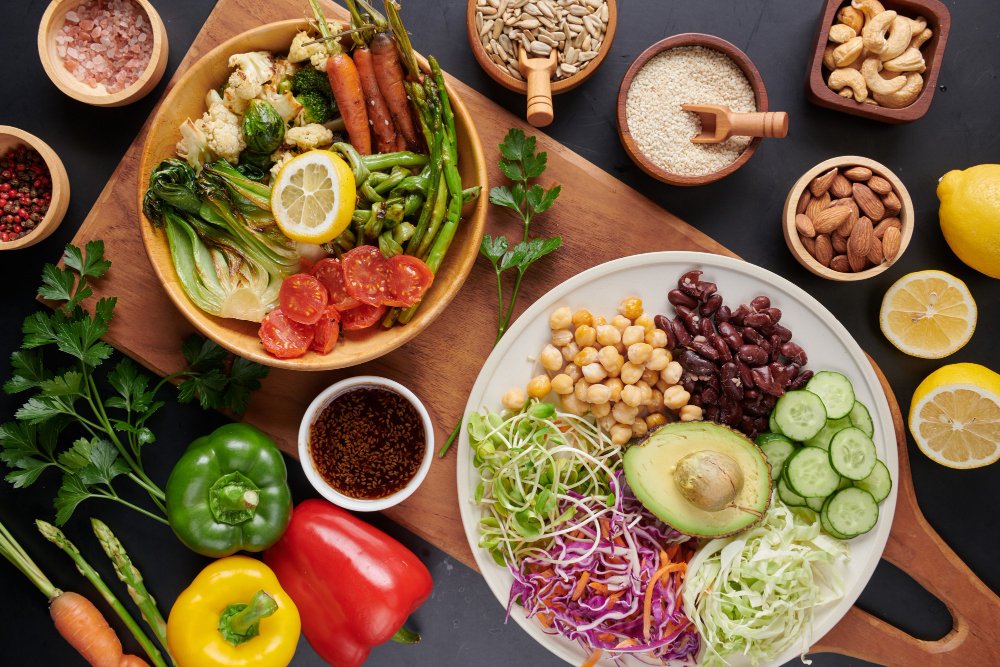
Nutritional Needs for Women at Every Stage of Life
When it comes to health, food plays the most powerful role. Women’s bodies go through many changes, from childhood to old age, and each stage demands specific care. Understanding the nutritional needs for women at every stage of life helps maintain energy, balance hormones, and prevent long-term health problems.
Childhood and Teenage Years

The foundation of health starts in childhood. Girls need a balanced diet rich in calcium, protein, and vitamins to support bone growth and development. During teenage years, iron becomes especially important because of menstruation. Therefore, foods like leafy greens, lean meat, beans, and fortified cereals should be part of daily meals. At this stage, parents must encourage healthy eating habits, since these choices shape future well-being. By focusing on the nutritional needs for women at every stage of life, young girls can grow into strong and energetic adults.
Reproductive Years
When women enter their 20s and 30s, nutrition directly impacts fertility, energy, and mental health. A diet rich in folate, omega-3 fatty acids, and antioxidants improves reproductive health. Whole grains, nuts, fruits, and vegetables should remain the base of meals. Moreover, staying hydrated is key for hormonal balance. During pregnancy, folic acid and iron become essential, while breastfeeding mothers need extra calories and calcium to support milk production. At this point, understanding the nutritional needs for women at every stage of life ensures both mother and child thrive.
Middle Age (40s to 50s)
As women approach middle age, metabolism slows down and the risk of lifestyle diseases increases. Calcium and vitamin D are critical to maintain strong bones, while fiber-rich foods support heart health. At the same time, women should reduce processed foods, unhealthy fats, and excess sugar to prevent weight gain and diabetes. Menopause brings hormonal changes that may cause fatigue, mood swings, or bone weakness. Therefore, including soy products, seeds, fish, and whole foods makes this transition smoother. Prioritizing the nutritional needs for women at every stage of life at this stage helps women remain active and confident.
Senior Years (60 and Beyond)

In the golden years, women need lighter but nutrient-dense meals. Protein helps preserve muscle strength, while calcium and vitamin D protect against osteoporosis. Hydration becomes more important because the sense of thirst weakens with age. Additionally, antioxidant-rich foods such as berries, nuts, and green tea protect the body from age-related damage. Seniors should also limit salt intake to avoid high blood pressure. Meeting the nutritional needs for women at every stage of life in later years ensures independence, vitality, and a stronger immune system.
Why Nutrition Matters at Every Stage
Good nutrition does not only prevent diseases but also boosts confidence, energy, and mental clarity. Women often multitask between work, family, and personal responsibilities, which makes diet even more crucial. With the right food choices, women can face challenges with more strength. The nutritional needs for women at every stage of life highlight the importance of eating smart rather than eating less.

Practical Tips for Every Woman
- Eat colorful meals: A variety of fruits and vegetables ensures diverse nutrients.
- Stay hydrated: Water, herbal teas, and fresh juices keep the body active.
- Limit junk food: Processed items may be tasty but harm long-term health.
- Focus on protein: Eggs, fish, beans, and dairy strengthen bones and muscles.
- Mind portion size: Balance prevents overeating and helps maintain a healthy weight.
Conclusion
Food is not just fuel; it is medicine for the body and mind. By paying attention to the nutritional needs for women at every stage of life, women can enjoy strength in youth, balance in adulthood, and grace in old age. With the right diet, every stage becomes an opportunity to feel healthier, stronger, and more empowered.

Aiman Fatima
October 8, 2025🥗 “Loved reading this! It’s amazing how balanced nutrition can support women’s energy, hormones, and overall well-being at every stage.”